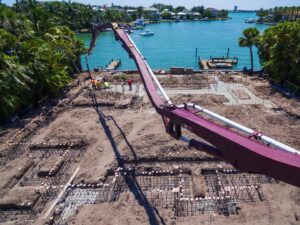
Sustainable design in residential engineering services is of utmost importance in today’s world, where environmental concerns are at an all-time high. As the global population continues to grow, the demand for energy, water, and other resources also increases. Therefore, it is crucial to design residential structures that have a minimal impact on the environment while maximizing energy efficiency and resource conservation.
One significant benefit of sustainable design in residential engineering services is the reduction in energy consumption. Sustainable homes are designed to incorporate energy-efficient technologies, such as solar panels, efficient insulation, and energy-efficient appliances. By reducing energy consumption, homeowners can save money on utility bills and reduce their carbon footprint. Moreover, sustainable design also helps in ensuring a more comfortable living environment, with fewer temperature fluctuations and better air quality.
Water conservation is another key aspect of sustainable design in residential engineering services. Sustainable homes often incorporate features such as rainwater harvesting systems, greywater recycling, and efficient plumbing fixtures to reduce water usage. These strategies help conserve this precious resource and mitigate the strain on local water supplies.
In addition to energy and water conservation, sustainable design also plays a vital role in reducing waste generation. Construction and demolition waste are major contributors to landfills, with residential projects accounting for a significant portion of this waste. Sustainable design focuses on minimizing waste by using recycled or locally sourced materials, implementing efficient construction practices, and designing homes with adaptability in mind, allowing for easier renovations or additions rather than complete teardowns.
One of the most critical aspects of sustainable design in residential engineering services is the consideration of the natural environment. Sustainable homes are designed to integrate with the surrounding ecosystem, preserving natural features and minimizing disruption to local flora and fauna. Additionally, sustainable design encourages the use of landscaping techniques that reduce water usage, such as native plantings and efficient irrigation systems.
Furthermore, sustainable design in residential engineering services also contributes to the overall health and well-being of residents. By incorporating natural daylighting, proper ventilation, and low-VOC (volatile organic compounds) materials, sustainable homes create a healthier indoor environment, reducing the risk of respiratory problems and other health issues associated with poor air quality.
In conclusion, sustainable design in residential engineering services is of utmost importance for several reasons. It helps conserve energy, reduce water usage, minimize waste generation, preserve the natural environment, and enhance the overall health and well-being of residents. By prioritizing sustainability in residential engineering services, we can build homes that are not only environmentally friendly but also comfortable, cost-effective, and designed to last for future generations.



